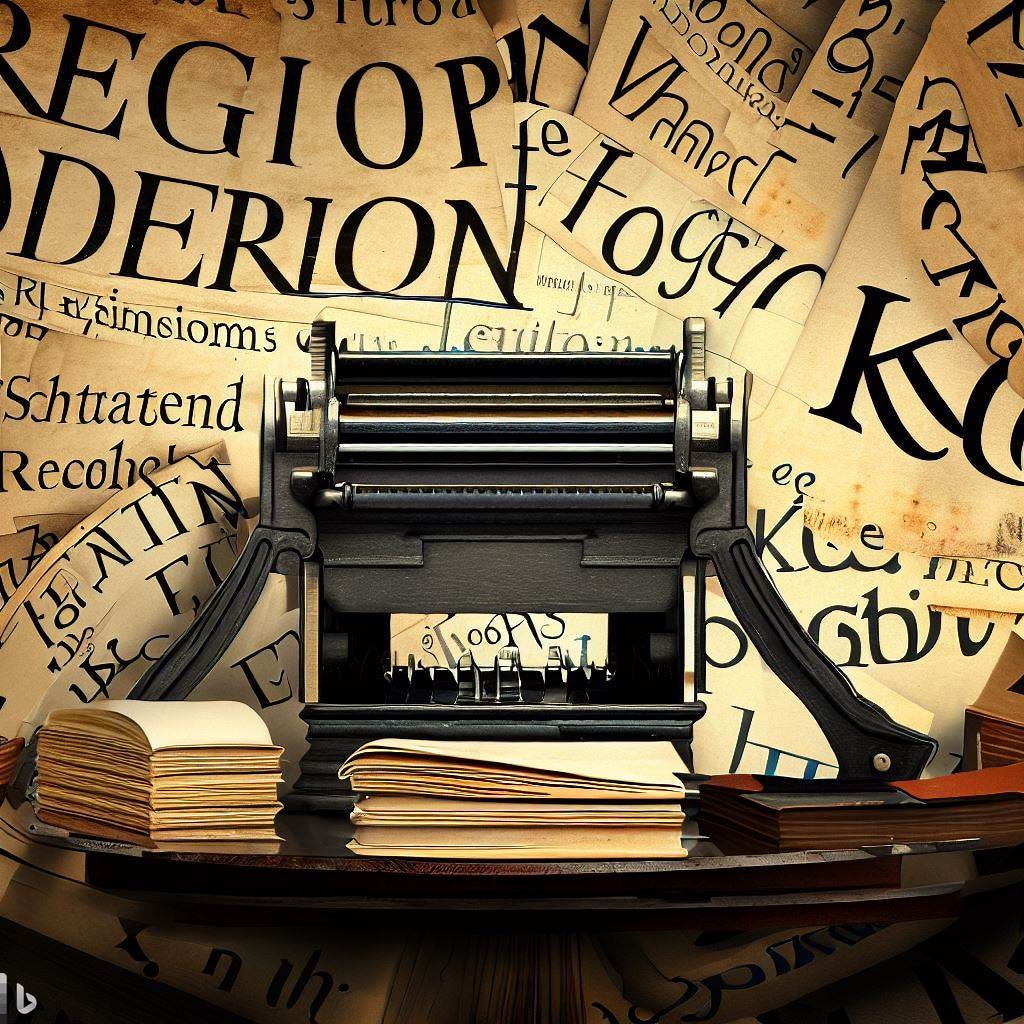The Longest Hour - Prologue 2
In sturdy machines of wood and steel, we arranged bits of lead and tin into sequence, coated them with oil, and pressed them onto paper. For the first time in the West, we could reproduce at will the time-crystals of our symbolic thought.
“No,” cried the priests. “Do not print books, for false Prophets will spread false Gospels.”
“No,” cried the scribes. “Do not print books, for it will ruin our trade.”
“No,” cried the nobles. “Do not print books, for reading is the virtuous privilege of the aristocracy alone.”
“No,” cried the monarchy. “Do not print books, for the Dangerous Ideas that undermine our monopoly on power will spread.”
“No,” cried the scholars. “Do not print books, for it will degrade the careful, sequestered refinement of our hoarded knowledge.”
“No,” cried the poets. “Do not print books, for it will destroy our artistry and steal our souls.”
“No,” cried the censors. “Do not print books, for how can we review them for blasphemous utterings when they are printed so blindingly fast?”
But we printed books by the million anyway. How could we resist? Newsletters and pamphlets spread memes and ideas at speeds hitherto unforeseen, while the fire of knowledge found ample kindling as the common man gained literacy from the suddenly affordable artifacts.
The decriers fought back with fury. Scribes’ Guilds smashed the printing machines to bits, chased booksellers out of town with cries of witchcraft. King Henry VIII ordered that his Privy Council must sanction all new English books before printing. The Pope issued the Inter Solicitudines, a decree to seize and burn books printed without the explicit scrutiny and approval of the Church.
One by one they succumbed to the temptations of mass informational replication. The Church even printed and sold indulgences—official get-out-of-hell tickets. A German monk took notice and nailed onto a church door a list of ninety-five complaints, knowing full well a copy would soon be in every hand. New political divides sliced deep fissures through the old as the true Questions That Matter came into ever sharper focus. Rivers of blood swiftly followed the rivers of ink that flowed torrents of Revolutionary Ideas into the zeitgeist.
To those engaged in deep communion with the supercharged noosphere, ideas and discoveries disseminated rapidly as we replicated data with accuracy and debated via focused, widespread scholarly journals. Yet a new and disturbing phrase also came to prominence: “It is true because I read it in a book.” The feared consequences of printing books at last came to pass in the fullness of their disruption. They were the Renaissance, the Reformation, and the Enlightenment.
—
Microsoft’s Bing Chat provided the title image as well as research and beta-reader-level editing assistance for this writing



I've been playing with your Chronicles of the Neon Shroud GPT, and would love a chance to ask a few questions, if you're still active!!! I'm working on something tangentially related.
miragemodularframework AT gmail DOR com